What are internet cookies and what do they do?

Cookies on the internet. What are they, what do they do, how do they work and ... are cookies dangerous? We are happy to enlighten you. One thing we can already tell you: they are not for eating. 😉
- How did the cookie get its name?
- Why cookies are important
- Different types of cookies
- What do cookies do?
- Cookie policy on your website
- Cookie banner on your website
- Does your website already comply with strict cookie rules?
- Your own fully customizable cookie banner using iubenda
- Find out exactly why you should choose iubenda's compliance tool:
- "What happens if I accept cookies?"
- Whether cookies are dangerous
How did the cookie get its name?
Admittedly: in Internet terms, it feels a little odd to talk about a single cookie. We usually talk about the plural, cookies. Still, it's interesting to discover how "the cookie" got its name. After all, there is an interesting story behind it!
Swapping cookies
One Lou Montulli came up with 'internet cookies' in the early 1990s. As a programmer at Netscape, he developed a way to store information on a user's PC.
For that, he relied on the idea of "magic cookies." This was a term that was already well established in the programming world at the time. Montulli compared his method to exchanging a cookie between server and internet user.
Since the introduction of cookies, they have become widespread and are used by almost all websites to store information and remember what a user is doing on a website. Most browsers support cookies (Internet Explorer, Mozilla Firefox, Google Chrome, Safari ...). In this way, cookies play an important role in personalizing the web experience, remembering login information and tracking user activity.
Why cookies are important
Opinions vary on the importance of cookies. The importance is mainly related to your browsing experience on the world wide web. And that is precisely what brings up opponents of cookies.
It can feel oppressive to know that third parties are collecting and perhaps processing data without the user's consent. This feeling is reinforced when people don't know how to protect their online privacy.
Advantages and disadvantages of cookies
It is quite true that cookies have advantages and disadvantages. Both for those who have a website and those who surf to it on the internet.
As the owner of a website, you can improve the functionalities of your site, analyze the surfing behavior of your users and eventually launch targeted marketing campaigns and advertisements. Without cookies, it is much more difficult to make those optimizations.
On the user side, cookies make the use of websites easier and more efficient. Convenience and personalization is therefore an important aspect of cookies. That shopping basket that is always filled, finding those last viewed items ... Cookies also increase the overall user experience of a site or online shop. Because thanks to personalization, you can navigate more conveniently on an application.
That personalization may be an essential part of cookies, but that's what makes them controversial. Because by no means everyone wants to receive personalized advertising. Following someone on social media? Yes. Being (secretly) followed for marketing purposes? Rather not. 😉 Although those advertising messages also have advantages: you find what you are looking for faster and score interesting discounts.
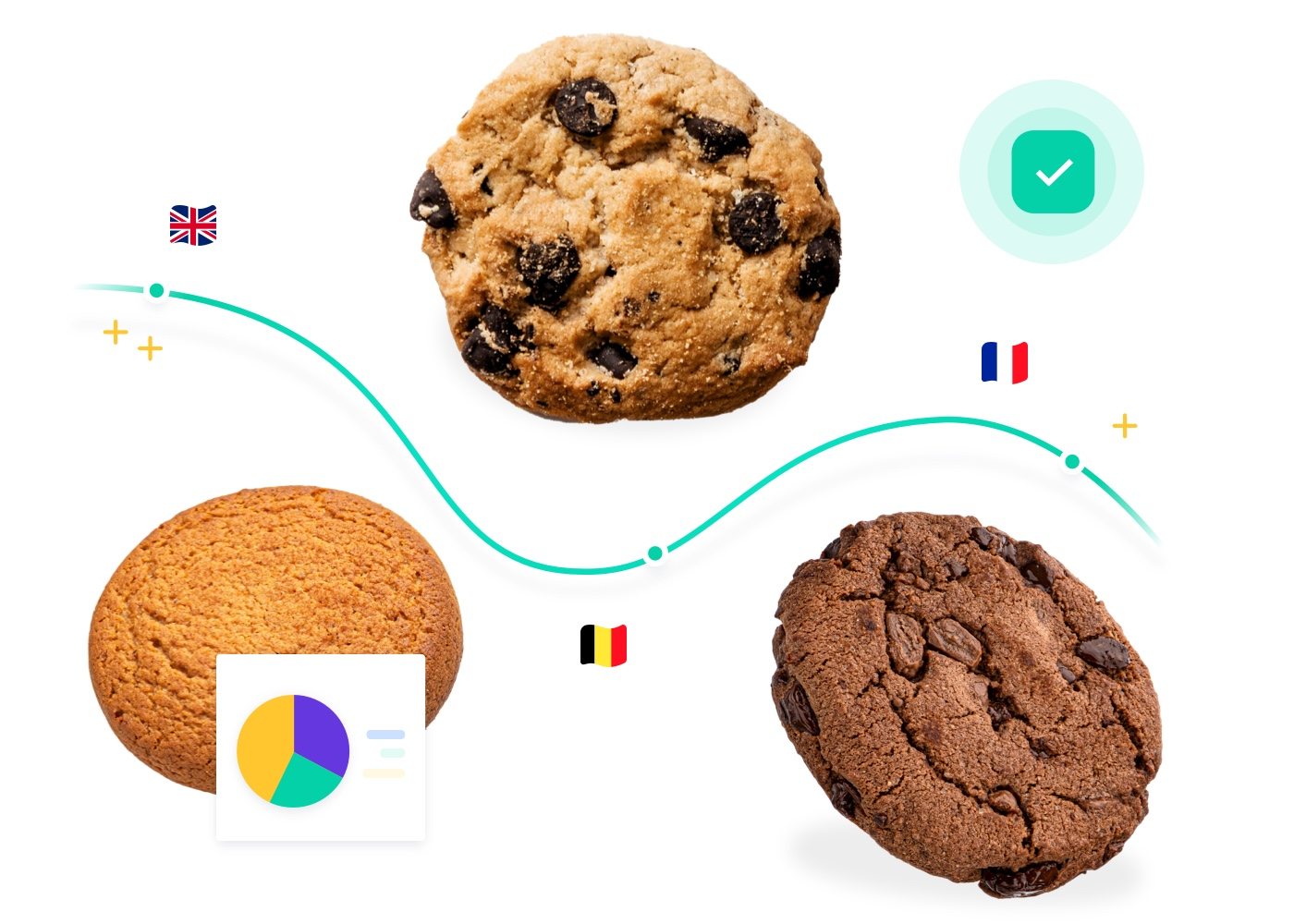
Different types of cookies
Cookies for everyone? Well, as each website has different and distinct purposes and functions, there are different types of cookies. Each type of cookie can collect specific information. This ranges from improving the user experience to showing personalized ads.
By using different types of cookies, your organization can better tailor your website(s) to what your visitors want. But it also benefits your business goals. With certain cookies, you can find out in detail what your potential clients are looking for.
These are common cookies:
- Strictly necessary cookies
- Performance cookies
- Functionality cookies
- Session cookies
- Analytical cookies
- Targeting or advertising cookies
- Third-party cookies
- Social media cookies
- Persistent cookies
- Affiliate cookies
Tip
Want to know exactly how these different cookies work? Then read our blog post where we take a closer look at the types of cookies out there.
What do cookies do?
When someone visits a website, the site places small text files called cookies on the device (laptop, smartphone ...). Those cookies contain information that your website can read when your user returns to the same website.
What do cookies do for you? This example explains.
For example, take a shopping cart on a webshop. When someone adds stuff to the shopping cart, this information is stored in a cookie on your customer's device. The next time your customer visits your website, the website can read the cookie and restore the shopping cart, so your user doesn't have to add the selected items again. This is an example of an essential cookie. Without it, the webshop will not work properly.
Collecting online information
Data stored via cookies can be read by the website and therefore also by you as the entrepreneur behind the site. That way, you can gather interesting information about your visitors.
Collecting this information is possible in various ways. For example, some data is provided by users themselves. Think of sharing an e-mail address to receive newsletters or filling out a form in which you reveal more about your preferences. Or say you run a webshop with clothing, your male customers can indicate that they want to see promotions for men's clothing on your homepage.
Cookies can also collect information about online surfing behavior. In some cases, that goes pretty far. Tracking which pages your potential customers visit, how long they stay on a particular web page and which links they clicked on.
With that data, you can make analyses. After all, it is logical that as a company you want to know who visits your webshop, which pages are popular ... But these cookies are also very interesting to show users personalized ads. Something not everyone is keen on.
Getting that personalized advertising flyer
Good to know: cookies are small text files that by default do not contain directly identifiable personal information (such as a name or address).
But if surfers allow that particular website to link cookies to personal data or IP addresses entered, then your site does collect a lot of personal information. Some companies may even send personalized advertising flyers to interested customers.
So it is important that users know what cookies a site uses and what information they can collect. After all, it is commonly known that citizens should watch over their privacy settings. In fact, they should manage their cookie preferences on a site-by-site basis. In an effort to gain control over their personal data.

GDPR & Cookies
No, GDPR & Cookies aren't a new band performing on the free stage at Rock Ternat. No, we are referring to what the General Data Protection Regulation (GDPR) says about the use of cookies on the internet. 😀 Call it the cookie law. By the way, Algemene Verordening Gegevensbescherming (AVG) is the Dutch-language name of this law.
Because with the GDPR law, the European Union wants to help their citizens watch over their personal data. This is because the EU is aware that cookies can have a certain impact on users' privacy. So you as a company have a responsibility to handle them carefully.
The General Data Protection Regulation states that anyone who puts cookies on an application must be transparent about it. You do that by communicating the use, the reason why and the retention period of your cookies.
In addition to being well informed, your customers must be able to give their consent for placing non-essential cookies on their device. These are non-strictly necessary cookies such as targeting or advertising cookies. For the placement of essential cookies (first-party cookies) you do not need explicit consent.
Nevertheless, users must always be given the chance to refuse cookies and/or manage their cookie settings. This is an essential part of European privacy law.
If you flout these rules, you risk high fines or other severe penalties. To give you an idea: GDPR fines in Belgium average up to 25,000 euros. They all have to do with violation of the General Data Protection Regulation.
Cookie policy on your website
Informing users, allowing them to consent, adjusting cookie settings ... Work to do if you have your own website. Make the use of cookies part of your privacy policy. You are required to develop a privacy policy anyway. Then you better include cookies in it.
You can also create a separate cookie policy that communicates how and why your website contains cookies. Anyone looking for an example of a cookie policy can take a peek at the drafted cookie policy of the Belgian Data Protection Authority (DPA). The DPA oversees GDPR in Belgium. As one of Europe's privacy regulators, they will know, no? 😉 The Personal Data Authority is its Dutch counterpart, by the way.
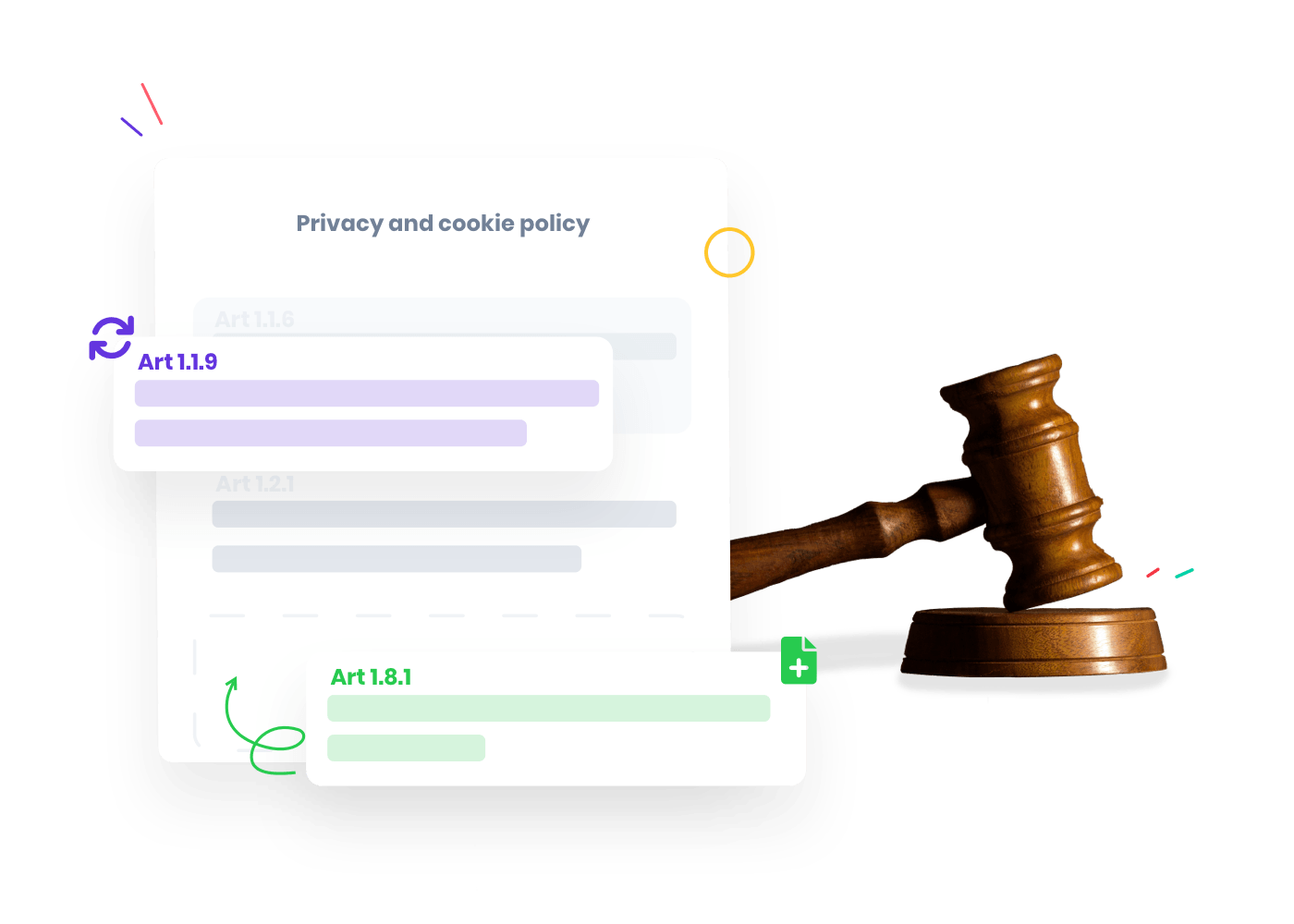
Cookie banner on your website
You can be transparent about how cookies work with a cookie policy or your privacy statement. But what about mandatory consent? You can collect it in various ways. A pop-up, having mandatory preferences checked ...
The most common method is to integrate a cookie banner. With that banner, you can make users give their consent or not and direct them to the cookie settings and to your policy.
It's the way to give users control over their personal data. Just make sure the banner appears even before your website sets non-essential cookies. Otherwise, it's all a waste of time.
Does your website already comply with strict cookie rules?
Take our free test and find out right away. Enter your domain name and get your results immediately.
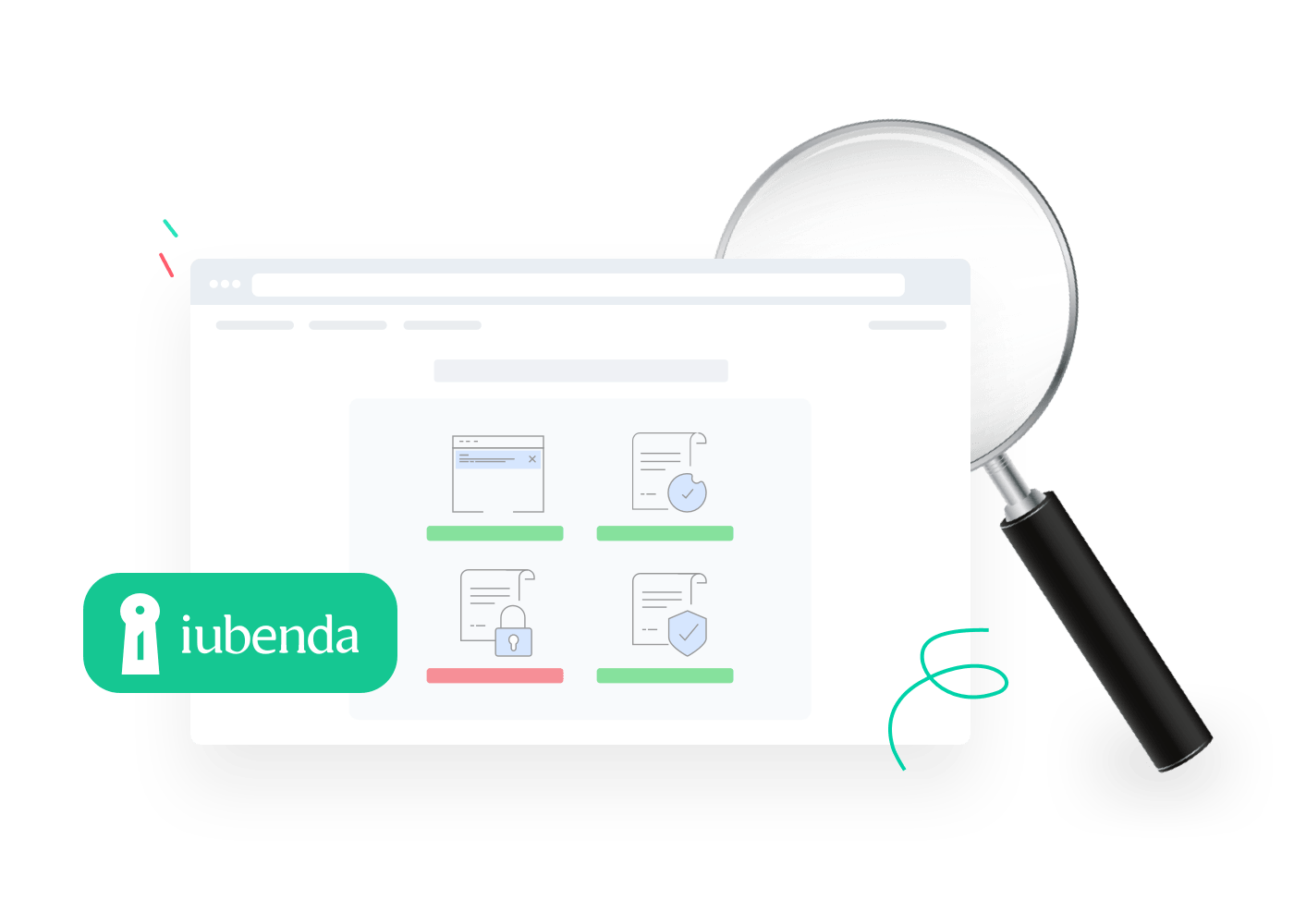
Your own fully customizable cookie banner using iubenda
Exploring your options for adding that cookie banner to your site or shop? Then you should know that you can figure everything out yourself, outsource to specialized firms and lawyers or ... use compliance software that creates the documents and tools for you.
iubenda, part of the same hosting group as Combell, is a good example of this. Not only nice, but above all practical and budget-friendly! With iubenda, you can generate a fully customizable cookie banner yourself.
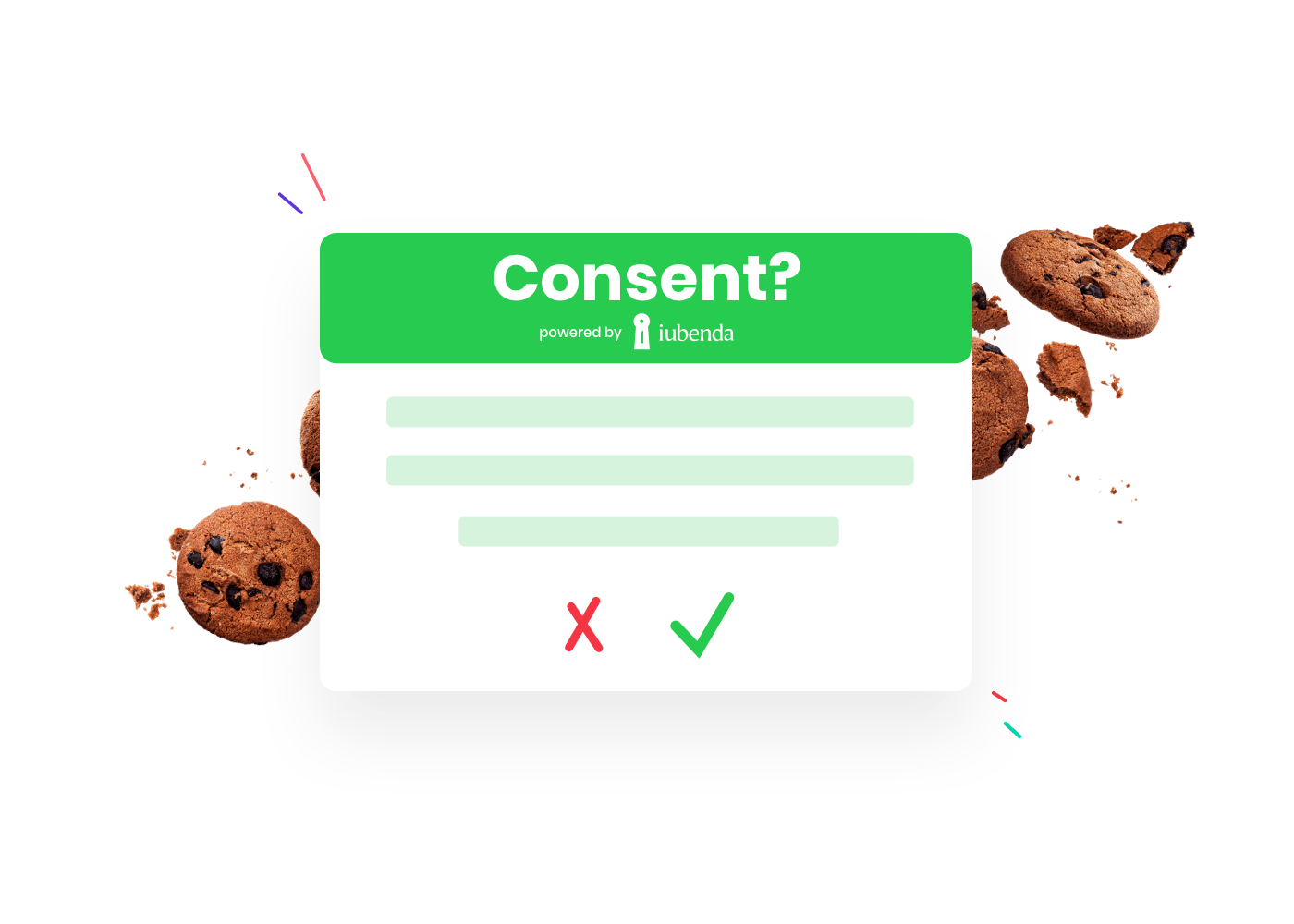
This is how you effortlessly collect and store consent from your users. The consent is immediately linked to your tracking tools. This is mandatory if you use tools like Google Analytics on your website.
You can even format the banner in your own style. This way it matches the design of your site. In addition, you can create your own cookie policy in no time. Including updates when laws change. So you can always be sure that your website complies with all the conditions around privacy and cookies.
Find out exactly why you should choose iubenda's compliance tool:
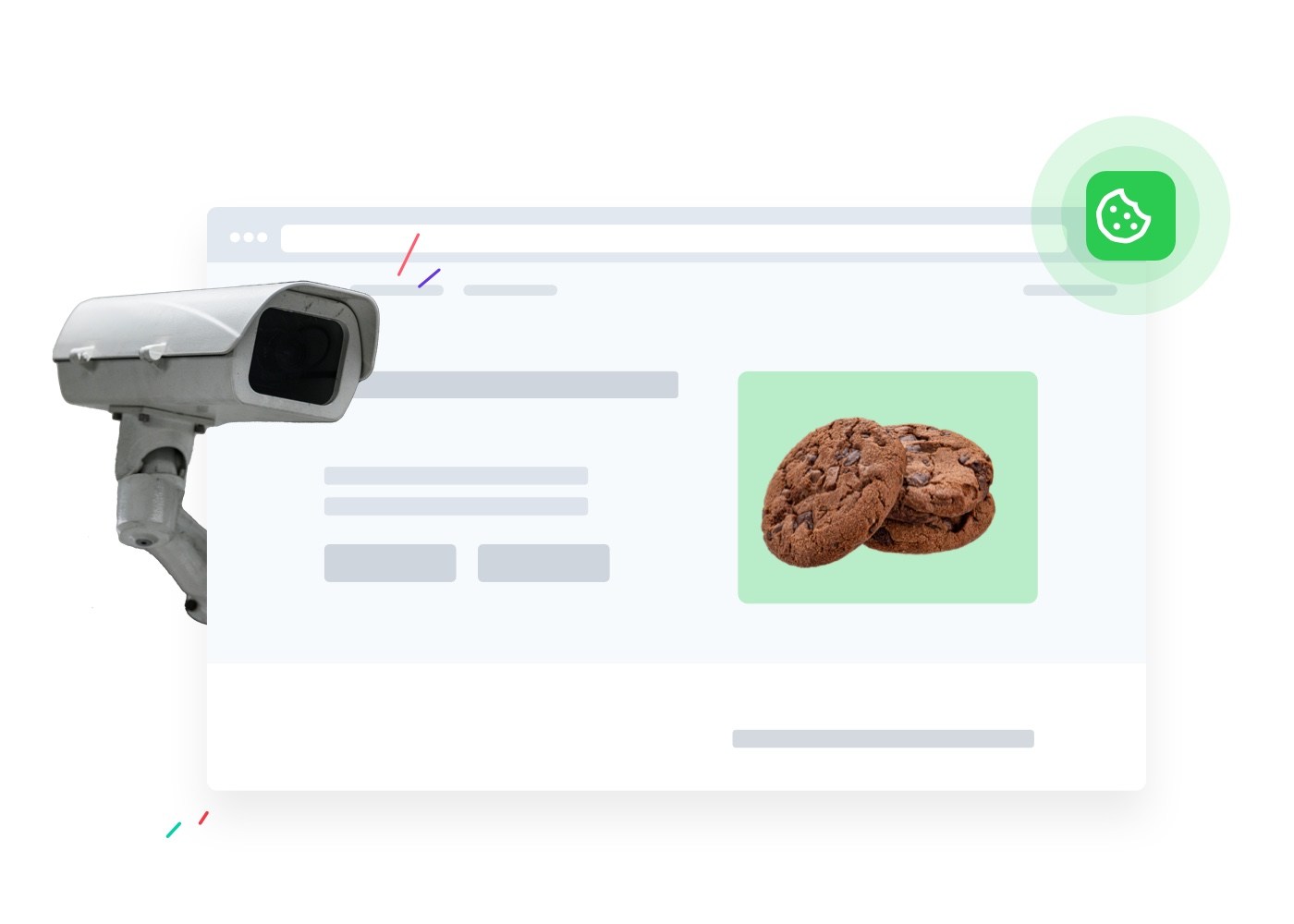
"What happens if I accept cookies?"
A question Internet users ask themselves from time to time. Just like "Can you be tracked by cookies?" Maybe you ask yourself that question from time to time, too. Entrepreneur or not, sooner or later we all have to deal with cookies.
It is true that if a user accepts cookies, they will be tracked by (certain) cookies. Although, of course, there are conditions and limits to this. Once the person in question accepts non-essential cookies, your site may collect and store certain info. Through functional cookies, your site will remember, for example, users' language settings, login information or other preferences.
If your website uses an advertising cookie, then the user also gives permission to track browsing behavior. It is such cookies that allow potential customers to see targeted ads or promotions.
Cookies on social media
Just check that out on Instagram, for example. If you accepted tracking cookies and/or third-party cookies there, the app will track your browsing behavior and interests. If you searched for vacation destinations and hotels just then, you will suddenly be shown personalized ads (airline tickets, hotel deals ...) based on your search behavior.
Because Instagram has been able to collect that info thanks to the various cookies. Showing such advertising is an important revenue model of "free" social media platforms.
Whether cookies are dangerous
Is it dangerous to accept cookies? In that we can reassure you: no, accepting cookies is not dangerous. They cannot spread viruses or cause direct damage to your computer. But as you've already noticed, cookies can have a big impact on your customers' online privacy. There has been more and more awareness around that in recent years.
So customers will be cautious about accepting cookies. You as a website owner must therefore do everything possible to draw up a clear cookie policy and put a correct cookie banner online.


